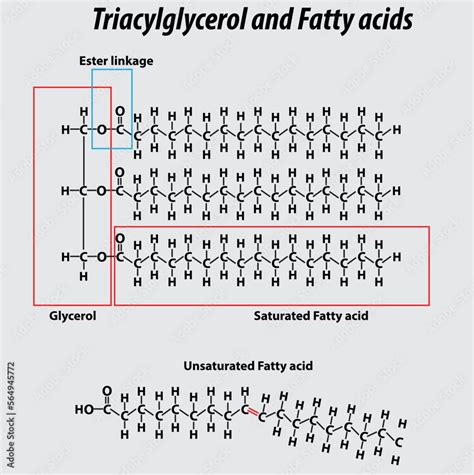Intro
Lower high triglycerides naturally with 5 effective ways, including diet changes, exercise, and supplements, to reduce heart disease risk and improve overall lipid profiles and cardiovascular health.
High triglycerides, a type of fat found in the blood, can significantly increase the risk of heart disease. Triglycerides are an important measure of heart health, and managing their levels is crucial for preventing cardiovascular issues. Elevated triglyceride levels can be caused by a combination of genetic, lifestyle, and dietary factors. Understanding the causes and consequences of high triglycerides is essential for developing effective strategies to manage and reduce them.
High triglyceride levels can lead to the development of fatty liver disease, pancreatitis, and increased risk of heart attack and stroke. Furthermore, high triglycerides can also contribute to the development of metabolic syndrome, a cluster of conditions that increase the risk of type 2 diabetes and cardiovascular disease. Therefore, it is essential to maintain healthy triglyceride levels through a combination of dietary changes, lifestyle modifications, and medical interventions.
The importance of managing triglyceride levels cannot be overstated, and there are several ways to achieve this goal. By understanding the causes of high triglycerides and implementing effective strategies, individuals can reduce their risk of heart disease and improve their overall health. In this article, we will explore five ways to manage high triglycerides, including dietary changes, lifestyle modifications, and medical interventions.
Understanding Triglycerides

Causes of High Triglycerides
There are several causes of high triglycerides, including: * Obesity * Physical inactivity * Smoking * High carbohydrate diet * Certain medications * Genetic predisposition * Certain medical conditions, such as diabetes and kidney diseaseDietary Changes to Manage Triglycerides

Foods to Eat and Avoid
There are several foods that can help manage triglyceride levels, including: * Fatty fish, such as salmon and mackerel * Nuts and seeds, such as almonds and flaxseeds * Avocados * Olive oil * Whole grains, such as brown rice and quinoa Foods to avoid include: * Sugary drinks and foods * Refined carbohydrates, such as white bread and sugary snacks * Saturated and trans fats, such as those found in red meat and processed snacksLifestyle Modifications to Manage Triglycerides

Exercise and Physical Activity
Regular exercise and physical activity can help reduce triglyceride levels and improve overall heart health. Some exercises that can help manage triglycerides include: * Aerobic exercise, such as walking or jogging * Resistance training, such as weightlifting * High-intensity interval training (HIIT)Medical Interventions to Manage Triglycerides

Medications and Supplements
There are several medications and supplements that can help manage triglyceride levels, including: * Fibrates, such as fenofibrate and gemfibrozil * Omega-3 fatty acid supplements, such as fish oil and flaxseed oil * Statins, such as atorvastatin and simvastatin * Bile acid sequestrants, such as cholestyramine and colestipolMonitoring and Maintaining Healthy Triglyceride Levels

Importance of Regular Check-Ups
Regular check-ups with a healthcare provider are essential for monitoring and maintaining healthy triglyceride levels. A healthcare provider can: * Check triglyceride levels through a blood test * Provide personalized dietary and lifestyle recommendations * Prescribe medications or supplements if necessary * Monitor progress and make adjustments as neededWhat are triglycerides and why are they important?
+Triglycerides are a type of fat found in the blood, and they are an important measure of heart health. High triglyceride levels can increase the risk of heart disease, as they can contribute to the development of plaque in the arteries, increasing the risk of heart attack and stroke.
How can I manage my triglyceride levels through dietary changes?
+Dietary changes, such as eating a low-carbohydrate diet, increasing omega-3 fatty acid intake, and eating more fiber-rich foods, can help manage triglyceride levels. It is also important to reduce saturated and trans fat intake and drink plenty of water.
What lifestyle modifications can help manage triglyceride levels?
+Lifestyle modifications, such as engaging in regular physical activity, practicing stress-reducing techniques, and getting enough sleep, can help manage triglyceride levels. Quitting smoking and limiting alcohol intake can also help.
What medical interventions are available to manage triglyceride levels?
+Medical interventions, such as medications and supplements, can help manage triglyceride levels. Fibrates, omega-3 fatty acid supplements, statins, and bile acid sequestrants are all options that can help reduce triglyceride levels.
Why is it important to monitor and maintain healthy triglyceride levels?
+Monitoring and maintaining healthy triglyceride levels is essential for preventing heart disease and improving overall health. Regular check-ups with a healthcare provider, maintaining a healthy diet and lifestyle, and managing stress can all help keep triglyceride levels in check.
In conclusion, managing high triglycerides requires a comprehensive approach that includes dietary changes, lifestyle modifications, and medical interventions. By understanding the causes and consequences of high triglycerides, individuals can take steps to reduce their risk of heart disease and improve their overall health. We invite you to share your thoughts and experiences on managing triglyceride levels, and to take action today to prioritize your heart health. Whether it's making dietary changes, increasing physical activity, or seeking medical attention, every step counts in the journey to a healthier heart.
